This episode was recorded on Sept. 8, 2025.
TechTank, a biweekly podcast from the Center for Technology Innovation at Brookings, explores today’s most consequential technology issues. Moderators Nicol Turner Lee and Darrell West speak with experts and policymakers to share data, ideas, and policy solutions that address the challenges of our digital world.
The media landscape is quickly changing. In July, Congress eliminated $1.1 billion in funds for the Corporation for Public Broadcasting, rescinding federal support for stations such as PBS and NPR in addition to smaller, local stations. There have also been a series of mergers and acquisitions that have diminished the importance of diversity in the voices.
These developments have put the Federal Communications Commission (FCC), the federal agency with oversight over the U.S. communications infrastructure, at the center of discussions and the news. And in the background, efforts to secure universal broadband access, especially for students and their families, are also at risk.
In this episode of the TechTank Podcast, co-host Nicol Turner Lee speaks with FCC Commissioner Anna Gomez on the future of the agency, the changing communications landscape, and the implications of these changes.
Listen to the episode and subscribe to the TechTank Podcast on Apple, Spotify, or Acast.
Transcript
CO-HOST NICOL TURNER LEE [00:00:00] You’re listening to Tech Tank, a bi-weekly podcast from the Brookings Institution, exploring the most consequential technology issues of our time. From racial bias and algorithms to the future of work, Tech Tank takes big ideas and makes them accessible. Welcome to the Tech Tank Podcast. I am co-host Nicol Turner Lee, the director of the Center for Technology Innovation at the Brookings Institution. Technology has been front and center in the news lately. I mean, honestly, when is it not front and center in the news? And under this current administration, it’s taken a series of ebbs and flows. In July, Congress eliminated $1.1 billion in funds for the Corporation for Public Broadcasting. Rescinding federal support for stations such as PBS and NPR. We’ve seen some stalling in terms of broadband access and connectivity that has been offered to the states under the previous administration. There are other concerns that we’re seeing First Amendment speech and just a variety of other issues that are happening in tech policy. And there’s an agency here in Washington DC, the Federal Communications Commission that has federal oversight. Over the national communications infrastructure. So I’m actually very happy to talk about these issues of public media, its implications on free speech, where we’re going with the digital divide and all these other issues that are probably top of mind for the listeners, with the one and only FCC Commissioner, Anna Gomez. Anna Gomez is the lone Democrat commissioner on the FCC appointed by President Biden. She joined the agency as a commissioner in September 2023, following decades of experience in communications policy and law, including previous stints at the FCC. For transparency, we’ve served together on the prior Communications Equity Diversity Council. And she has also served as the National Telecommunications and Information Administration Deputy Administrator, and as a counsel to the Senate Commerce Committee. So Commissioner Gomez has an extensive history of not… Just the issues that I’m talking about, but probably so many others that I am not sure we’ll have time to talk about, but it’s good to be in the company of someone who can help us make sense of what’s going on in the world of tech policy these days. Commissioner Gomez, thank you so much for joining me.
FCC COMMISSIONER ANNA GOMEZ [00:02:38] Thank you, Nicol. It’s so great to be with you.
CO-HOST NICOL TURNER LEE [00:02:41] Oh, always. I really appreciate this lone voice that you have, but more importantly, just the vast depth of experience, right, that you had that I think we can get into a few issues. During the course of our discussion. So let’s start with the agency for our listeners who might be less familiar. Yes, there is a Federal Communications Commission. Commissioner, what is the FCC’s overall role and how is the agency working over the years to maintain, you know, I guess this level of independence from executive decisions and making sure like the train’s leaving the station with everybody on.
FCC COMMISSIONER ANNA GOMEZ [00:03:17] So the FCC is an independent agency tasked with regulating communications, whether that be radio, television, your wireless, access to broadband, satellite services. And in the process, the FCC acts as a steward for responsible use of the nation’s airwaves. Now the FCC’s supposed to make decisions based on law, the facts, and technical expertise, not politics. We take our direction from the Constitution, the law, and the public, and that’s what Congress intended. So to give you a little bit of history on our agency, when Congress considered establishing our predecessor, the Federal Radio Commission in the late 1920s, it considered vesting the power in the Secretary of Commerce alone. It struck down that idea, however, and it did so specifically because Congress feared that a single individual subject to political will would possess too much control over who could operate the cutting edge communications technology of the time, which at the time was radio. So ultimately, Congress concluded that a multi-member commission was the best choice. And then when Congress later amended the federal radio commission to create the federal communications commission, it once again chose to vest that authority in a multi member independent agency, and Congress’s message could not have been clearer. The FCC was designed to be an independent expert agency led by a multi-member, multi-party commission. And this independence has largely been maintained across administrations. In fact, historically we have seen leaders stand up to political pressure in order to preserve the independence of the agency. Under this administration, however, we have this FCC react more to political pressures in a way that is concerning and that threatens the independence of the agency going forward.
CO-HOST NICOL TURNER LEE [00:05:15] So I think that that’s a really clear explanation of what the FCC does, right? And I just wanna sort of tag on to that explanation you just gave our listeners. As an independent agency, yes, we have seen many of your colleagues across the United States government sort of bow down to some of these political pressures as well. But what’s the implication in particular for communications? Cause you know, I want people to understand. The FCC covers everything that has to do with a voice or connectivity or anything related to communication, starting back to the telegraph, right? Commissioner Gomez is under the purview of this agency, the nuts and bolts of making sure that these things run efficiently, but more importantly, that they’re universally available to all people that live within this United States of America. How has this teetering on the independence of the agency affected the ability of the FCC to make, you know, appropriate decisions. Just curious.
FCC COMMISSIONER ANNA GOMEZ [00:06:18] No, you said that exactly right. We regulate all forms of communications. And the reason why Congress was so concerned about keeping us free from the interference, the political interference of the executive was because of the power of communications and what we don’t want is an administration that imposes its truth or its version of the truth on the consuming public, whether it’s via the internet. Or via the television or via the radio. And what we’ve seen under this administration is this administration has weaponized the licensing authority of the FCC in order to chill speech and to bring to heel the broadcasters so that they will only report the news in a way that this administration favors.
CO-HOST NICOL TURNER LEE [00:07:12] So let’s go into what’s recently happened with public media. I think that’s a nice segue, right? So to date, you’ve been involved with a lot of issues, but this is one I think is near and dear to the FCC’s mission in particular, being able to cultivate a public and independent media for all consumers. There have been funding cuts, right, that we all have been exposed to with regards to what’s happening to stations like PBS and NPR, National Public Radio. How has the FCC sort of looked at these stations prior to the cuts and what’s so interesting about today what’s happening with sort of their eroding, their ability to be public and independent?
FCC COMMISSIONER ANNA GOMEZ [00:07:55] There’s a reason why the federal government has supported public media since its creation through the Public Broadcasting Act of 1967. They are important to communities that have no other access to, for example, educational programming, to news, to public safety messages, in particular in rural areas. These public stations have an unparalleled commitment to their communities. And so it’s so important that we have this public media. And we have seen over the years attacks on public media, but this is the first time we’ve seen success in fully defunding public media. We have seen reductions in funding in the past. The rules of sponsorship identification were amended by Congress and the commission in the early 1980s. But at the same time, Congress passed the Public Broadcasting Amendments Act of 1981 to ensure that public media remained financially viable in the wakes of reduction to federal funding. And the commission implemented this act in 1982, providing rule modifications, which changed the definition of acceptable underwriting to allow expanded levels of information about sponsors without tipping over into advertising. The intent was to attract additional funding while maintaining the non-commercial nature of public broadcasting. So let’s fast forward to today. We see the complete defunding of the government’s funding of public broadcasting. And in addition to that, we see this commission initiating investigations into the underwriting practices of public stations under what I call a guise to seek proof that these stations are violating their rules and are in fact not acting as non-commercial stations. So what you see is a phishing expedition by the FCC in addition to having the FCC recommend Congress that it defund public media.
CO-HOST NICOL TURNER LEE [00:10:04] And that’s really hard to swallow, right? Because I’m thinking about the Indigenous population. 29% of them currently are in the United States, live in rural areas and rely upon over 60 plus public media stations to be able to have a lifeline to what’s happening outside of their sovereign lands. I mean, I don’t think people realize just the impact of this commissioner. I’d love for you to speak a little bit more, you know, being on the inside. What is the impact of these cuts on rural and indigenous people who have no other communications infrastructure, let alone broadband access, to know what’s happening around them?
FCC COMMISSIONER ANNA GOMEZ [00:10:47] Yes, you’ve said that exactly right. Many of these public stations serve very remote areas that have no other sources of news, particularly in times of crisis. These public radio stations provide that needed information to their communities. I’ll give you an example of a very recent event that you may remember when an 8.8 magnitude earthquake struck the Russian coast that at the time could have threatened Hawaii and Alaska with potentially deadly tsunami waves. Thankfully, the worst did not come to pass, but this moment showed the important role that public media plays in alerting the public during times of emergency. First in Hawaii, we heard of severe traffic gridlock during this latest threat due to over-evacuation. And people were initially told to leave entirely the areas at risk. And authorities were slow to communicate alternatives like vertical evacuation and safe structures. In Alaska, some confused residents were given conflicting messages as they struggled to understand what steps to take to keep themselves and their families safe. Some received emergency alerts with a mistaken evacuation order for Unalaska, which caused panic and confusion until authorities reversed course. In both of those instances, public media helped provide clarity for the public in moments of extreme confusion and perceived danger. In the end, in Hawaii, it was a public media station who helped get the message out that there were other alternatives to leaving the area, and in Alaska, KUCB, the official primary alert station for the region and another public station that noticed the mistake in evacuation order and worked with local and state authorities to provide the public with immediate clarity amidst the confluxion. So there’s no doubt how critical of a role public stations play in our alerting system.
CO-HOST NICOL TURNER LEE [00:12:44] And for me, these catastrophic events or ones that are potentially catastrophic, they really indicate that public media really is a nonpartisan issue, right? Or at least it should be. But I want to just push it one more time on this, right, because I’m a little confused myself when I think about just why there was so much animosity against this medium of broadcast. I mean, First Amendment was sort of undergirding a lot of this discussion and commissioner, I know you were very vocal about some of the First Amendment rights that also come with media in general. I mean, to a certain extent, like are we losing the character of our voice by squashing and sort of constricting the ability of independent media to tell their own stories?
FCC COMMISSIONER ANNA GOMEZ [00:13:27] Yes, this is very worrisome. We really need to have a free press in order to provide journalism to the consumers. It is so important to have broadcasters, whether they’re public media or non-public media, that will hold power to account and report on those in power without fear or favor. And what we are seeing is a campaign of censorship and control. In order to bring to heel the broadcasters to report on ways that this administration wants to see reported. And that is really worrisome. It is exactly the chilling effect that we talk about when what we have is broadcaster’s mincing their words because they’re so afraid of retaliation from this administration. The reason that was given for defunding public media, despite the importance from public safety perspective, from a news and information perspective, from an educational perspective to their communities was this alleged bias in the content that these stations provided. And so that tells you that the reason why it was done was because this administration does not want any of the viewers or the listeners to hear information in any way other than the way that it wants it to be presented.
CO-HOST NICOL TURNER LEE [00:14:57] Yeah, and that to me is like the most troublesome part, right? Because you’ve got the public safety requirement of these stations to deliver newsworthy, timely information, especially in instances where there could be a catastrophe. But at the other side of it, these are public radio stations, right, or public TV stations that do not have half the money, a quarter of the money of the commercial broadcasting sector, which I think is another conversation I want to have with you. Because while we’re sort of eroding the investments in public media, we have seen this FCC move forward with some pretty big deals on the commercial side, most notably the Paramount, CBS, Viacom merger. I was really interested in this one. One of the caveats was to sort of strip away diversity, equity, inclusion efforts to get the deal passed. It sounds like there’s a little bit more over-monitoring of the type of programming. That these folks will do despite the appointment of an omnibusman to sort of make sure that they were staying in compliance of the FCC’s criteria for the passing of this. I mean, how do we understand also this shift that’s happening on the commercial side? Because it just appears to me so contradictory to the commission’s goal of getting content for a variety and diverse set of listeners, but yet I don’t want to say this is censorship on the commercial side. I just think it’s another type of pressure that I would love to hear from you, like how the commission is sort of navigating that terrain as well.
FCC COMMISSIONER ANNA GOMEZ [00:16:32] Well, this is just another example of how this administration is weaponizing the FCC’s licensing authority in order to reach a result that it wants, whether it’s fighting the culture wars, whether its censoring the news and media information complex. As you mentioned, there were… Two significant things that Paramount agreed to do in order to get its transfer of control approved by the FCC. As you mentioned, they agreed to eliminate all of their diversity, equity, and inclusion efforts. And that is something that this administration has done since the very beginning of the administration is to go after anything related to diversity, equity and inclusion. The first action that the FCC took was not with regard to getting broadband to consumers on an affordable basis, or about spectrum, no. It was about eliminating all diversity, equity, and inclusion programs. And this FCC is undermining legitimate efforts to combat discrimination and to expand opportunity by overstepping its authority. And intervening in employment matters reserved for other government entities with proper jurisdiction on these issues. Sadly, Paramount embraced this administration’s radical notion that discriminatory behavior should be tolerated and even embraced while efforts to expand opportunity for everyone should be rejected. And this is nonsensical. We know these steps are good for business. And that removing diversity, equity, and inclusion practices goes against business interests to cater to their audiences, which are just as diverse as the rest of the country. And with regard to the content of CBS’s products, CBS also agreed to install a truth monitor. And in fact, that person was announced today. And that person’s job is to report to the president of Paramount. And to address any complaints about CBS’s content and alleged bias in its news organizations. And you mentioned censorship. That is what I call government enforced self-censorship. And it is completely antithetical to the First Amendment. We need the press to be free. And what that means is we need the corporate overseers of our news organizations to stay out of the journalistic decisions of the news division at CBS. And the appointment of this truth arbiter is exactly the opposite of what the First amendment calls for.
CO-HOST NICOL TURNER LEE [00:19:26] And, you know, I’ll insert my two cents, you know, because you know my background and the work I do at Brookings and what I’ve done before here. It’s just so interesting to me, right? Because there was this whole movement to address some of the representation concerns on the screen and behind the scenes, right, because at the end of the day, to your point, like all consumers are different. We like romance, we like drama, we like seeing people who look like us, we like seeing leaders on boards that we know is going to bring content that is basically a niche-based content that may be not seen by major commercial networks. But here we are sort of saying no. We don’t really care about the people who are looking at this content, who may not see themselves in this. So I find this to be such an interesting reversal. Of many of the EO rules, equal opportunity rules, excuse me, folks, as well as some of the licensing conditions that the FCC had put in place to ensure that everybody saw themselves represented in the nation’s communications infrastructure in some way or form. I mean, is there a way out of this, Commissioner, or is this going to be something that is just going to go on for the next few years and we’ll have to figure out how to go back and sort of repack this and reconstruct this? Because I just think that people are gonna turn the TV off, right, at some point, if they don’t see their own selves like represented or the things that they care about.
FCC COMMISSIONER ANNA GOMEZ [00:21:00] So let’s just talk about something that you just mentioned. We have three pillars of our media policies. They are localism, diversity of viewpoints, and competition. And the EEO rules that the commission had were meant to ensure that we addressed the localism because you want to make sure that you’re you’re reflecting your community and your voices of your community in your broadcast stations as well as diversity of viewpoints for the reasons that you can imagine. The current FCC’s demands to drop all diversity, equity, and inclusion programs are basically a perversion of our civil rights statutes and the FCC is putting itself in the place of the Equal Employment Opportunity. And demanding changes over which the FCC really has no responsibility. And it does so in this guise of that broadcasters need to serve the quote-unquote public interest. Well the public interest isn’t anything that this FCC doesn’t like or likes. The public interest has to actually be within the statutory mandates of the Communications act. And the Communications Act does not ask us to step in the shoes of the Equal Employment Opportunity Commission. And then finally, what I would point out is, of course, we have not seen any specific instances of discrimination of the type that this administration keeps complaining about with diversity, equity, and inclusion. Does discrimination exist? Sure, I am sure it is true, but these actions are such an overreaction. To what is claimed to be discriminatory practices, that it’s just really to the extreme of a pendulum, because we had actually made so much progress and this administration just seems to want to go back on that progress.
CO-HOST NICOL TURNER LEE [00:23:19] You make some really interesting points there. Can you share with folks like localism means that you’ll get to see the news in your community, right? Cause I think people miss that point, right, that there’s this localism piece. I would love for you to just like dig into that for a minute.
FCC COMMISSIONER ANNA GOMEZ [00:23:35] Yeah, that’s exactly right. We want to make sure that local broadcasters, which are our licensees, we license the local broadcast stations, are actually serving their community. And that means addressing the community itself as opposed to just providing a single nationalized report that doesn’t give you your local circumstances, weather, crime, civics, your city council, traffic reports, these are all things that are of interest to the local community. And then of course, in times of emergency, it’s really of interest to the global community. And we want to make sure that these broadcast licensees are serving their local communities through their licenses.
CO-HOST NICOL TURNER LEE [00:24:26] And that’s so important for people to understand that because I think that the commission has perhaps jumped into, like you said, these bigger, larger issues while eroding what appears to be public media, that people forget that you have purview over whether or not they’re going to know what Friday Night Lights did in their community. I know I listen on Fridays to the high school football reports because I can identify with those schools in my district or I’m looking for people who are going to tell me not just about what’s happening. With crime in my neighborhood, but also like what farmers’ markets are coming up. The internet has clearly deteriorated that. So our last, you know, annul of communication is through our local news. So I really appreciate everything that you’re talking about. And I think it’s something that we’re going to have to keep a pulse on, right, in terms of what that looks like going forward. But one thing, you now, I love to talk about, Commissioner, is broadband. I think you’ve known me for a long time, over 10 years at least, and I’ve been talking about broadband connectivity forever, and most importantly because the FCC has purview over that as well. We’ve made a lot of progress, so I want to talk about the good stuff first. We did make some progress with the recent commission, and, I believe, you were still there when former FCC Chairwoman Jessica Rosenwald was there, in terms of space. And we are seeing a lot more conversation around the role of space communications when it comes to just advancing connectivity and more remote access areas. Tell us a little bit more about what the FCC does in this space. And then I wanna talk a little about some of the other things that we see going on at the FCC.
FCC COMMISSIONER ANNA GOMEZ [00:26:06] Yes, there’s been so much opportunity with space communications. And as you mentioned, former Chairwoman Rosamorosal created the Space Bureau because we have seen such a proliferation of space technologies, aka satellites, that are bringing very exciting services and are going to be important as we continue trying to reach every American with communications. Now there’s been a lot of energy in utilizing satellite technologies to improve communication services overall. In 2023, as you mentioned, the FCC created a framework that allows satellite and cell phone companies to partner to offer wireless service to consumers in remote areas using their regular phone. And we’re currently seeing those partnerships develop and their services being tested. For example, AST Mobile, which is the satellite provider and AT&T, the wireless provider, recently completed a video call by satellite to a smart phone. On the broadband side, the technology is very exciting. It’s not perfect, but it’s certainly improving. But there are very remote areas where satellite is the only viable option for connectivity. So satellite broadband connectivity is an important tool in our toolbox to ensure that remote areas are connected. Acknowledging that, the FCC currently has proceedings asking the public to comment on the possibility of opening up additional spectrum for satellite broadband use, among other uses, and I look forward to seeing technological improvement in the satellite broadband area that can strong connectivity in rural and remote areas.
CO-HOST NICOL TURNER LEE [00:27:50] And I appreciate you saying like having it as one of the tools in the toolkit, right? Because I think there’s also this narrative that satellite sort of outpaces fiber. When in actuality, I think we need all types of connectivity to go to communities and the best way informed that we know how to connect people, right. I mean, people don’t understand. Look, commissioner, we’ve been around for a long time since the beginning of this concept of the digital divide. I know you were in the mix of it at some point in your early parts of career. This is not a new issue, right? And the technology has just gotten so much better that we should have these different options in the toolkit, don’t you think?
FCC COMMISSIONER ANNA GOMEZ [00:28:27] Absolutely, we need all the tools.
CO-HOST NICOL TURNER LEE [00:28:30] That’s right, that’s right. But I’m thinking though about some of the recent news around the progress we’re making with the broadband investments that were done under the Biden-Harris administration and how some of those investments have unfortunately also stalled. It would seem to me that the internet is a major driver that we shouldn’t be second guessing in our society today, especially as this administration is advancing artificial intelligence and trying to figure out ways to accelerate the compute power that will be available to everyday people. What do you think are gonna be the impacts if we actually go through rolling back the progress you made when it comes to broadband access and adoption? I mean, how is that going to impact you know, many families, not just rural and Indigenous communities as we’ve already spoken about, but people who live in cities, senior citizens, the disabled. I mean, I’m curious like how you see that impacting communities, households, businesses, especially given the uncertainty that some states are having right now in getting their appropriation.
FCC COMMISSIONER ANNA GOMEZ [00:29:40] Yeah, I’m very concerned about this because while this administration seems to be putting a premium on low cost, lowest upfront cost to deploy broadband, I think that may be penny wise and pound foolish. As you note, broadband connectivity is so important today. It is important to go to school. It is important for health care. Veterans need it. In order to get their health care, seniors needed in order to get there health care. Job applicants need to have internet access in order be able to apply for a job. And what we are seeing is a rolling back of services to these communities. And as you mentioned, in the artificial intelligence age, it’s gonna become even more important to have access. Not just to the internet, but to high speed internet. What you really do need is to have fiber built out to these communities because fiber is scalable, scalable, resilient, and capable of supporting everything from remote learning to artificial intelligence. And this is the infrastructure that’s necessary for participation in the AI economy, which is a technology that we can all agree is critical to continued U.S. economic leadership. I worry that communities that do not have access to affordable high-speed broadband will be left behind in the new AI world. The consequences of lack of connectivity will snowball, which will lead to not just digital divide, but a digital chasm.
CO-HOST NICOL TURNER LEE [00:31:32] Ooh, I mean, wow, that just gave me chills up my spine. I mean listen, my listeners know again, I am just so committed to this space. I wrote a book about it, right? I mean Digitally Invisible: How The Internet Is Creating The New Underclass. And so everything that you’re saying is resonating with me because it’s just very difficult to think about how we’re gonna have these accelerated emerging technology systems. And basically have a lapse in just basic connectivity for communities across the country who still struggle to this day, since the elimination of the Affordable Connectivity Program to maintain basic access. They’re constantly choosing between broadband and food. I mean, there weren’t really interesting interventions that the FCC had taken over the years, Commissioner, to make sure we were keeping a pulse on what these needs are. And I know that several of them are still in place. Can you tell? People how the FCC is sort of monitoring these communities.
FCC COMMISSIONER ANNA GOMEZ [00:32:31] Yes, I mean, we have a program to collect data on broadband deployment and adoption throughout the communities. And we use that to inform our funding and the federal government uses it for other funding programs in order to determine what communities need to have funding in order get access to high speed internet. And that’s good that we collect this data. But I’m so glad that you raised the Affordable Connectivity program, because losing that program was really a shame. We had 23 million households signed up for low-cost broadband service through the Affordable Connectivity program. And sadly, we ran out of funding and had to close that shop. And one of the studies that we’ve seen shows that millions of households have had to drop their broadband service. We know we are in an age of inflation. We know that we are at a time when people are having to think twice about what they spend their budgets on. And to not have access to broadband is like cutting off access to the future for these households.
CO-HOST NICOL TURNER LEE [00:33:47] Yeah, and I’m just hopeful, you know, I don’t know nowadays what I should be hopeful for because it does change. You know, that we can continue this conversation to see how this may roll over into advancing, you know the universal service fund and it appears that several states are starting to have that conversation. But you know what hit me the other day that I would love to talk about and I still can’t sleep at night on this one. You and I talked about like household based broadband service. But I just read that perhaps the commission is considering rolling back the e-rate program and the hotspots that go to students from their public libraries. You know, I remember maybe almost about eight to 10 years ago when we wanted to actually have this type of program, the way that young people check out books, that they could also check out Wi-Fi because we found that it was really important for kids to be able to do their homework. We all know about the homework gap. It’s set in stone. When we start to see these types of moves. I mean, what is that also saying about our ability to ensure that our students are widely connected and getting the resources that they need to be successful in our society?
FCC COMMISSIONER ANNA GOMEZ [00:34:57] Yes, so many students rely on the, it’s called the E-Rate program that the FCC funds in order to get access to hotspots and to wifi on school busses so they can do their homework. So far these programs have helped us to ensure that no child is left behind due to the lack of broadband. Now the FCC is moving to strip that connectivity away while doing nothing to make broadband more affordable. Their latest proposals will only widen the gap between those with access to modern day tools and those left behind. I think we need to fight back against this level of cruelty and indifference by this administration.
CO-HOST NICOL TURNER LEE [00:35:39] I just remember when I was doing my book, just how important those hotspots were to urban, suburban, and rural students, as well as those that were able to access them from tribal lands. I mean, we take for granted, again, that everyone is doing their homework, but we definitely still see young people going to the fast food restaurants to complete homework just to use their wifi for free. And that sits with me. I mean for the listeners that know me, this is something near and dear to my heart because it is a way. Of impacting people’s quality of life. I wanna sort of wrap up this conversation and so much I still wanna talk to you about, but I guess I gotta bring you back on. Won’t be too selfish with your time. What’s next for the communications landscape? I mean, given what we are seeing in terms of the political pressures and influences, some of the challenges to the statutory expectations of this independent agency. As well as the growing demands of technology in particular and its acceleration, soon to make basic broadband access more archaic because of things like artificial intelligence. I’d love to hear from you like what’s next in ensuring that the FCC meets its original purpose of universal access for everyone.
FCC COMMISSIONER ANNA GOMEZ [00:37:01] So we can’t ignore artificial intelligence. It is clear that establishing global leadership on AI is a national priority for the United States. That, however, requires infrastructure that has the bandwidth to handle the large amount of data that AI consumes and generates. So we really need to continue to push to find affordable access. To the infrastructure that we need in order to participate in the artificial intelligence age. And artificial intelligence is not just for big companies. We are going to see the companies rely on artificial intelligence that really requires consumers to have the ability to consume and to utilize that artificial intelligence in their day-to-day lives. That means they need to have access to high-speed broadband in order to be able to do so and to participate in this next version of the economy. So it is really important for the Commission to continue to find the resources and to support consumers to get affordable access to that information.
CO-HOST NICOL TURNER LEE [00:38:16] And this almost reminds me of when the commission, you know, actively jumped into broadband almost like 15, 20 years ago. I’m just dating myself. And I’m not dating you, just myself. But I just remember like, when we started talking about broadband, it was almost like how we’re beginning to talk about AI, right? Where it was just this new evolving technology that was going to transform the way that people live, learn and earn. And to your point, We’ve got to make sure people have basic internet access, Commissioner. So I’m glad that that’s top of mind for you. I mean, for those of you listening here at Brookings at the Center for Technology Innovation, we’re taking that issue on as well. We’re going to be publishing a lot in the next few months around why it’s important to go back to our roots of digital inclusion. So we ensure that we’re not going to leapfrog people when it comes to AI, just because they either do not have the infrastructure or the device to engage with it effectively. Commissioner, I think we miss in this conversation. I feel like I’m sitting with you in some room and we’re just sitting down, just giving a good history of the commission’s intention and goals. Yes, well.
FCC COMMISSIONER ANNA GOMEZ [00:39:25] It’s been so wonderful talking to you as always.
CO-HOST NICOL TURNER LEE [00:39:31] Yes, I also agree. We want to thank Commissioner Gomez for joining us. She again is the Democrat that is on the Federal Communications Commission, but most importantly, I want to just take that prescription away from her. She’s been in this space for a very long time, more than 20 years, and understands how these systems operate and how people behave in the system. So we really appreciate you, Commissioner, for taking the time to share your perspective with us today. Thank you, it’s been great talking to you. Folks, please explore more in-depth content on tech policy issues at Tech Tank, which is available on the Brookings website, brookings.edu. Your feedback matters to us about the substance of this episode and the others that we do. So please leave us a comment and let us know your thoughts or suggest topics for you’d like for us to discuss. This concludes another insightful episode of the Tech Tank podcast. We make. Bits into palatable bites. Until next time, thank you for listening. Thank you for listening to Tech Tank, a series of roundtable discussions and interviews with technology experts and policymakers. For more conversations like this, subscribe to the podcast and sign up to receive the Tech Tank newsletter for more research and analysis from the Center for Technology Innovation at Brookings.
The Brookings Institution is committed to quality, independence, and impact.
We are supported by a diverse array of funders. In line with our values and policies, each Brookings publication represents the sole views of its author(s).


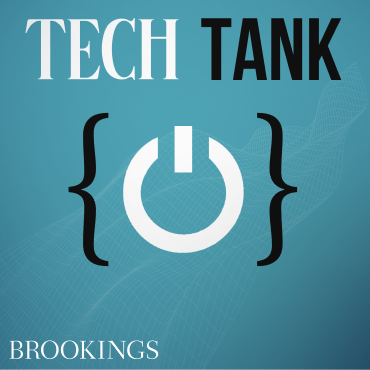

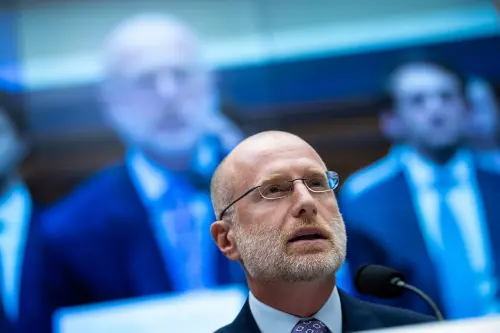

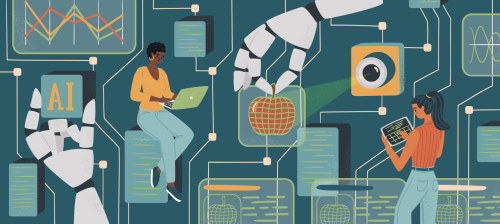
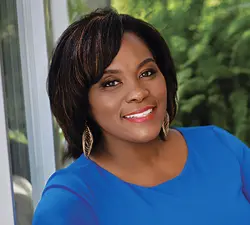
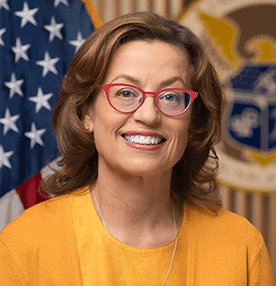
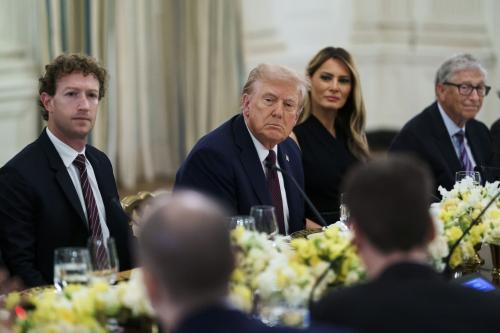
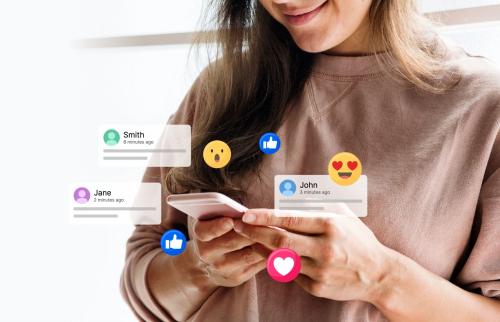
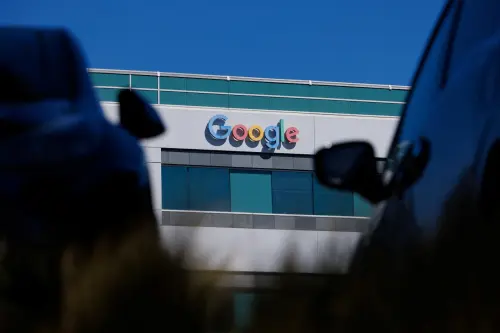
Commentary
PodcastFCC Commissioner Anna Gomez talks about the future of the communications landscape | The TechTank Podcast
Listen on
September 22, 2025